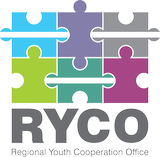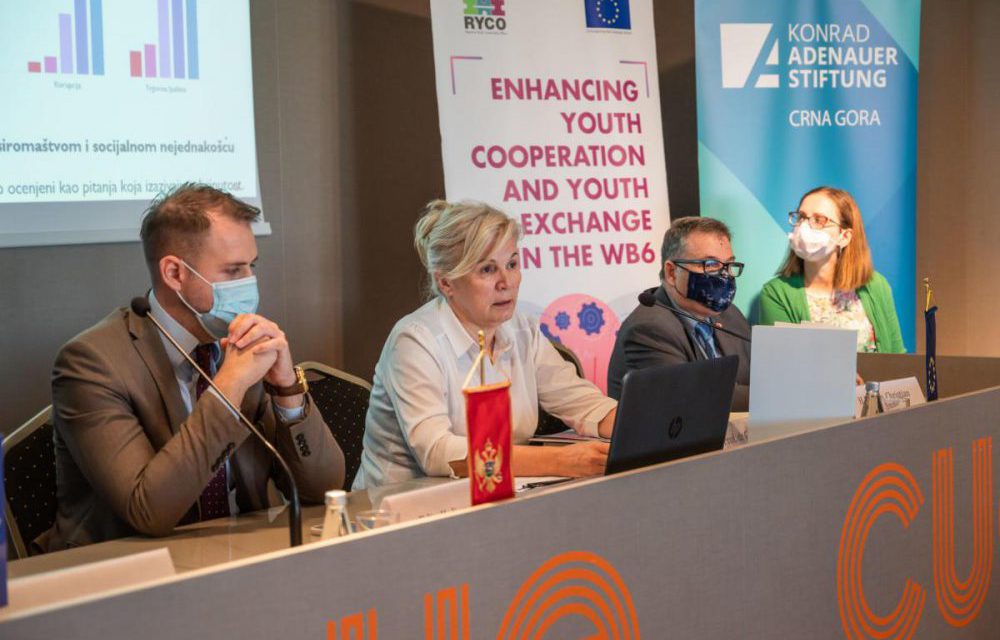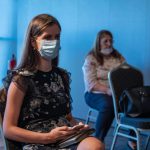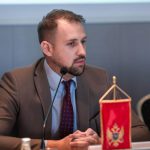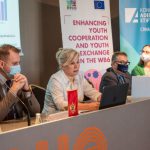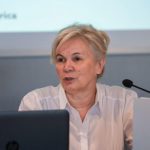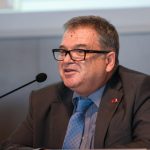PODGORICA – Head of the RYCO Local Branch Office in Montenegro Mr Edin Koljenović participated in the final press conference of the project “Multidimensional aspects of Democracy and Identity: Youth Dialogue and Learning in the time of COVID-19 pandemic (MULTIYOU)” organized by the Montenegrin Pan-European Union, at the CUE Hotel on 14 September 2021.
This project is supported by RYCO within the fourth Open Call for Project Proposals co-financed by the European Union, and it is implemented in partnership with the Observatory for Children and Youth Rights from Albania, the Pan-European Union of Bosnia and Herzegovina, and the Centre for Foreign Policy from Serbia.
The press conference served as the opportunity for the organizers to present the results of the MULTIYOU project, which are the following: youth survey on multidimensional aspects of democracy and identity, Regional Summer School for young people from Albania, Bosnia and Herzegovina, Serbia and Montenegro, and a bilingual brochure on project results and its thematic areas.
The event was attended by Head of the RYCO Local Branch Office in Montenegro, President of the Montenegrin Pan-European Union Ms Gordana Djurović, Ambassador of France to Montenegro H.E. Christian Thimonier, and Head of the KAS Foundation Office in Montenegro Ms Sanija Sljivančanin and focused, among others, on discussing key findings and recommendations from the youth survey.
The focus of the event was the youth survey based on multidimensional aspects of democracy and identity, encompassing around 500 respondents from the Contracting Parties involved in the project (Albania, Bosnia and Herzegovina, Montenegro, Serbia). Young people answered questions about democratic reforms and European integration, identity, and trust, as well as mobility, education, and employment.
In her address, Ms Djurović welcomed the participants and presented the key results of the survey that were related to the topics of the European values, attitudes towards state of democracy in the Western Balkans societies, towards the education systems, democracy during the COVID-19 pandemic, trust towards different groups of people in the Western Balkans, and more.
Mr Koljenović said that today, more than ever, we must invest in the young, new generations and provide opportunities that will lead to strengthening their cooperation.
“Data on the level of confidence between youth belonging to different groups is fueling hope as trust is key for establishing long-lasting peace and truthful reconciliation in the region,” Mr Koljenović highlighted.
“European spirit is present among youth in the Western Balkans. Debate on the future of Europe was launched so we could have even a better understanding of what changes and progress young people would like to see,” Mr Thimonier stated in his remarks.
In continuation, Ms Sljivančanin, added that through the organization of the summer school, young people in the region had the opportunity to meet and create friendships.
“We believe that this is the best possible way to promote dialogue,” concluded Ms Sljivančanin. She added that the research conducted within that project is very important as it can be of benefit to the public and decision-makers in creating their policies and understanding youth perceptions on topics of democracy and identity.


